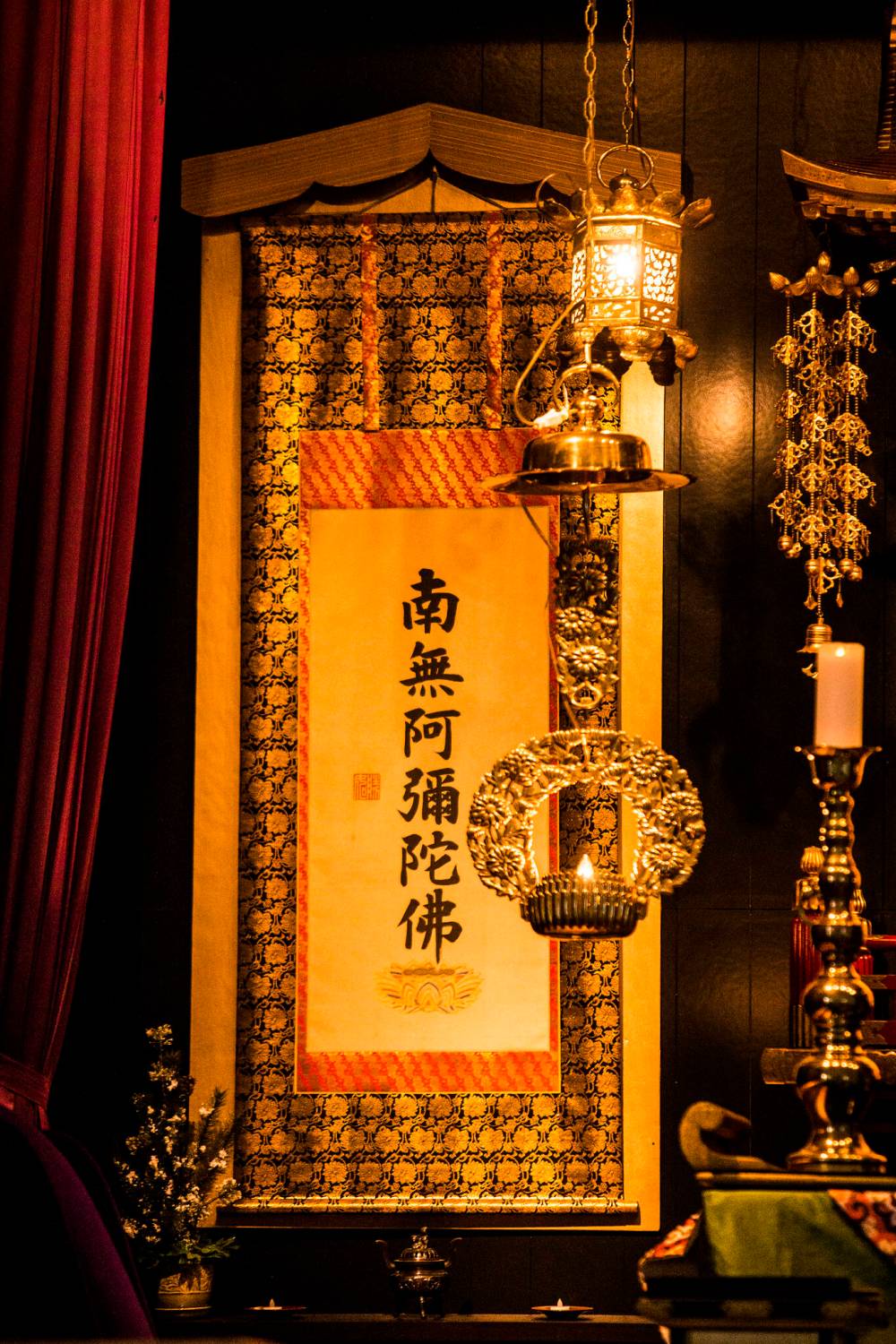Local Buddhist Temple teaches true meaning of karma; promotes positive living
Advertisement
Read this article for free:
or
Already have an account? Log in here »
To continue reading, please subscribe:
Monthly Digital Subscription
$0 for the first 4 weeks*
- Enjoy unlimited reading on winnipegfreepress.com
- Read the E-Edition, our digital replica newspaper
- Access News Break, our award-winning app
- Play interactive puzzles
*No charge for 4 weeks then price increases to the regular rate of $19.95 plus GST every four weeks. Offer available to new and qualified returning subscribers only. Cancel any time.
Monthly Digital Subscription
$4.99/week*
- Enjoy unlimited reading on winnipegfreepress.com
- Read the E-Edition, our digital replica newspaper
- Access News Break, our award-winning app
- Play interactive puzzles
*Billed as $19.95 plus GST every four weeks. Cancel any time.
To continue reading, please subscribe:
Add Free Press access to your Brandon Sun subscription for only an additional
$1 for the first 4 weeks*
*Your next subscription payment will increase by $1.00 and you will be charged $16.99 plus GST for four weeks. After four weeks, your payment will increase to $23.99 plus GST every four weeks.
Read unlimited articles for free today:
or
Already have an account? Log in here »
A popular misconception about the Buddhist idea of karma is that it’s about punishment — a kind of cosmic “what goes around comes around.”
While Buddhists believe actions have consequences, karma is a much deeper idea than that, said Kyle Rathgaber, a board member of the Manitoba Buddhist Temple.
“Karma is not about retribution,” he said. “It’s not about being punished for something you did wrong.”

MIKAELA MACKENZIE / FREE PRESS FILES
The altar at the Manitoba Buddhist Temple in Winnipeg. Winnipeggers interested in learning about the Buddhist idea of karma are invited to a free public workshop at the temple from 10 a.m. to noon Saturday.
While there are elements of negative consequences in the idea of karma — if you are angry at others all the time, you may feel stress and anxiety in your own life — for Rathgaber, 34, it’s more about how people can peacefully and helpfully engage the world around them.
“The teachings of the Buddha are about how we can have right speech, thoughts and actions for ourselves and those around us,” he said. “It’s not just something bad that happens to us.”
Winnipeggers interested in learning more about karma are invited to a free public workshop at the temple from 10 a.m. to noon Saturday. The speaker is Tatsuya Aoki, bishop of the Jodo Shinshu Buddhist Temples of Canada and currently serving as the resident minister at the Vancouver Buddhist Temple. His topic is “Karma and Buddhist Freedom.”
Rathgaber has found Buddhist teachings about karma helpful in his own life.
“If someone yells at me, I think of peaceful ways to respond,” he said about his job as a constituency assistant for an NDP MLA.
If someone is angry about something, the idea of karma helps him not respond the same way. “A bad reaction is just going to make things worse,” he said, adding he tries to promote positive karma that will calm things down — to produce a good consequence for the other person and for himself.
“It’s about finding ways not to pass the harm along, but to stop it,” he says of how Buddhist teachings help him in his daily life.
Living a life that promotes positive karma is more important than ever today, with all the craziness in the world, Rathgaber added.
“The news makes us all feel anxious,” he said of what is happening in the U.S., especially, but also in other countries. “The goal is to avoid internalizing it and causing stress for ourselves, and for others.”
What he especially likes about Buddhism is how it can be practised anywhere — at home, at work, or in the car.
“It’s a way to feel better every day,” he said.
Tanis Moore is the sensei, or teacher, at the temple. By following the teachings of the Buddha, “we can find freedom as we help others,” she said, adding that Buddhism recognizes physical, verbal and volitional karma.
“The first two are tangible actions that can be controlled to some extent, but volitional actions such as thoughts and feelings are more challenging to control,” she said.
Through the workshop, people can learn more about dealing with thoughts and feelings that cause them to feel anxious and stressed. “Karma is a way to live into this present life as imperfect beings,” she said.
The Manitoba Buddhist Temple is at 39 Tecumseh St. For more information, visit wfp.to/mbbuddhist.
faith@freepress.mb.ca
The Free Press is committed to covering faith in Manitoba. If you appreciate that coverage, help us do more! Your contribution of $10, $25 or more will allow us to deepen our reporting about faith in the province. Thanks! BECOME A FAITH JOURNALISM SUPPORTER

John Longhurst has been writing for Winnipeg's faith pages since 2003. He also writes for Religion News Service in the U.S., and blogs about the media, marketing and communications at Making the News.
Our newsroom depends on a growing audience of readers to power our journalism. If you are not a paid reader, please consider becoming a subscriber.
Our newsroom depends on its audience of readers to power our journalism. Thank you for your support.
History
Updated on Thursday, October 23, 2025 2:45 PM CDT: Corrects typo in headline
The Free Press acknowledges the financial support it receives from members of the city’s faith community, which makes our coverage of religion possible.


